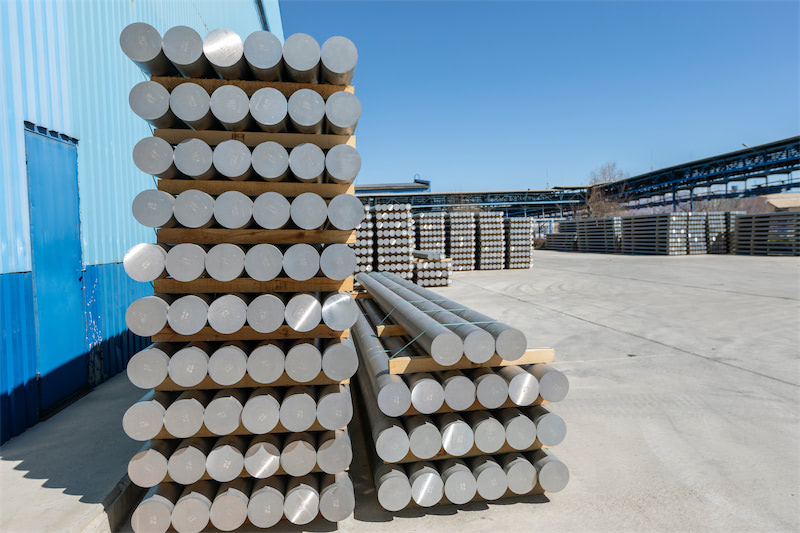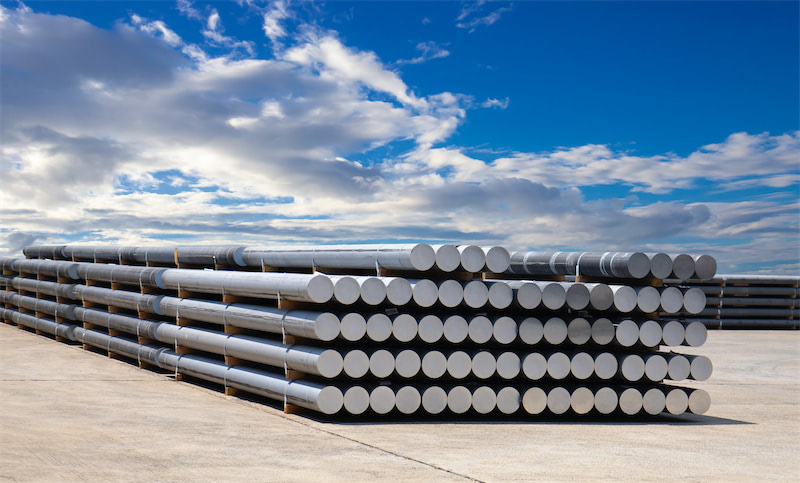(To Be Confirmed) Innovation-Driven: The Impact of Intelligent Factory Transformation on Plate/Sheet, Strip and Foil Enterprises [SMM Aluminum Industry Conference]
Smart Logistics: The Core Engine of Intelligent Factories
► Analysis of Traditional Logistics Pain Points
1. Information Silos Hinder Collaboration: Traditional aluminum plate/sheet, strip and foil enterprises face difficulties in information sharing across production, warehousing, and transportation, affecting overall efficiency. Information silos lead to data delays, making it hard for enterprises to grasp real-time production dynamics, resulting in delayed decision-making and missed market opportunities.
2. Labor Dependency and Low Efficiency: High reliance on manual labor for handling, loading, unloading, and sorting leads to low efficiency, high costs, and frequent errors, hindering enterprise development. Manual operations are prone to fatigue, high work intensity, and recruitment difficulties, leaving enterprises facing labor shortages.
3. Crude Inventory Management: Lack of real-time data support results in crude inventory management, making precise control difficult and leading to high capital occupation. Inventory overstock or shortages occur frequently, affecting production continuity and increasing operational risks.
► Smart Logistics Technology Empowerment
IoT Enables Device Interconnection: IoT technology connects production equipment, warehousing systems, and transportation vehicles, breaking information barriers. Real-time collection of equipment operation data monitors production status, provides early fault warnings, and ensures stable production.
Big Data Optimizes Decision-Making Processes: Big data helps enterprises analyze massive production data, accurately predict demand, and optimize production plans. Adjusting inventory levels based on data reduces inventory costs, improves capital turnover, and enhances competitiveness.
AI Enhances Intelligence Levels: AI drives intelligent warehousing and scheduling, enabling automated sorting and handling, improving efficiency. Smart algorithms optimize logistics routes, reduce transportation time and costs, and enhance logistics delivery accuracy.
Case Study: Smart Logistics Empowers Enterprises to Improve Quality and Efficiency
Its transformation of traditional manufacturing: Digital Factories Green the Future; shared cases of intelligent three-dimensional warehouses, intelligent warehousing management, and intelligent handling systems in aluminum processing industry-related enterprises.
The Profound Impact of Smart Logistics: From Efficiency Improvement to Model Transformation
► Data-Driven Decision Transformation
1. Real-Time Data Precision Optimization: Real-time collection and analysis of logistics data help enterprises optimize production plans, inventory management, and resource allocation. Accurately grasp market dynamics, plan ahead, reduce risks, and enhance enterprise risk resilience.
2. Smart Decision-Making Boosts Benefits: Data-driven decisions make enterprise decision-making more scientific and precise, improving production efficiency and economic benefits. Adjust production strategies based on data to meet market demand and enhance market competitiveness.
3. Core Value Leads Transformation: Data-driven decision-making becomes the core competitiveness of enterprises, leading industry transformation and development. Promote the shift from traditional production models to intelligent and digital production models.
► Flexible Production Model Innovation
1. Enhance Market Adaptability: Flexible production models enhance enterprise market adaptability and expand market share. Adapt to rapid market changes, improve brand awareness, and market influence.
2. Rapid Response to Personalized Needs: Smart logistics systems support multi-variety, small-batch flexible production, meeting market personalized needs. Quickly adjust production plans, shorten product delivery cycles, and improve customer satisfaction.
3. Core Value Drives Model Innovation: Flexible production becomes key to innovation and development in aluminum plate/sheet, strip and foil enterprises, driving industry transformation and upgrading. Lead enterprises from mass production to personalized custom production, enhancing enterprise value.
► The Profound Impact of Smart Logistics
Optimize Logistics Paths to Reduce Carbon Emissions: Smart logistics optimizes logistics paths, reduces transportation mileage and energy consumption, and lowers carbon emissions. Promote green production, fulfill social responsibility, and enhance enterprise social image.
Reduce Material Waste for Environmental Protection: Through precise inventory management and production plan optimization, reduce material waste and achieve green production. Lower resource consumption, improve resource utilization efficiency, and support sustainable development.
Core Value Leads Green Development: Green sustainable development becomes an important enterprise strategy, leading the industry's green development trend. Promote the aluminum plate/sheet, strip and foil industry's shift from traditional high-energy consumption to green, low-carbon production models.
Future Outlook: Smart Logistics Leads Industry Transformation
New Technologies Drive Logistics Upgrade: With advancements in IoT, big data, and AI, smart logistics application scenarios expand. The integration of 5G, blockchain, and other new technologies further enhances the intelligence level of smart logistics.
Smart Logistics Empowers Industry Development: Smart logistics brings more innovation opportunities to the aluminum plate/sheet, strip and foil industry, driving industrial upgrading. Help enterprises improve production efficiency, reduce costs, enhance quality, and strengthen market competitiveness.
Smart logistics becomes the core driving force for the transformation of the aluminum plate/sheet, strip and foil industry, leading industry innovation and development. Promote the shift from traditional production models to intelligent, digital, and green production models.
Industry Transformation Brings New Opportunities
1. Strengthen Communication and Cooperation for Development: Enterprises should enhance communication and cooperation, share experiences and technologies, and jointly promote industry development. Industry associations and other organizations play a bridging role, organizing training, seminars, and other activities.
2. Policy Support Facilitates Industrial Upgrading: Governments introduce policies to support smart logistics development, such as tax incentives and funding support. Policies guide enterprises to increase investment in intelligent transformation, driving industry transformation and upgrading.
3. Core Value Leads Industry Forward: Joint exploration and efforts will lead the aluminum plate/sheet, strip and foil industry to a brighter future. The industry continues to advance on the path of intelligence, digitalization, and greenization, achieving sustainable development.
In addition, it introduced the overview, industry position, R&D capabilities, system simulation and digital twin technology planning and design capabilities, three major sectors of intelligent logistics software and hardware products, intelligent warehousing systems, and the product map of intelligent forklift robots FMR of Jingsong Intelligent Company.
》Click to view the special report on AICE 2025 SMM (20th) Aluminum Industry Conference and Aluminum Industry Expo.
Data Source Statement: Except for publicly available information, all other data are processed by SMM based on publicly available information, market communication, and relying on SMM‘s internal database model. They are for reference only and do not constitute decision-making recommendations.
For any inquiries or to learn more information, please contact: lemonzhao@smm.cn
For more information on how to access our research reports, please contact:service.en@smm.cn



